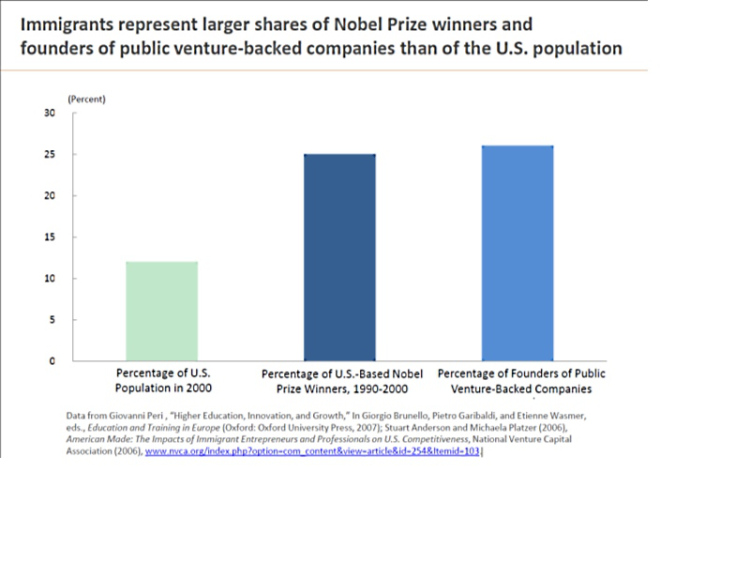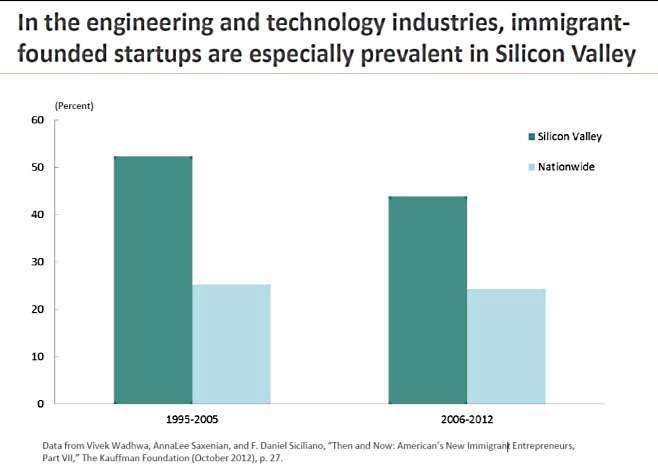The Congressional Budget Office (CBO) analyzes trends in immigration and policy proposals that would affect immigration and states on its website that,
Of the 40 million foreign-born people living in the United States in 2011, about 22 million were not citizens. About half of those non-citizens were authorized to be in the United States either temporarily or permanently; the remainder, about 11.5 million people, were in the country without authorization, a number that has changed little over the past few years.
In other words, the number of individuals working in the U.S. without proper authorization is stagnant and has not in any way contributed to rising unemployment or an erosion of high paying U.S. jobs. So, why have the parties, both Democrat and Republican stopped meaningful dialog towards addressing a fundamental issue confronting the nation – immigration?
In fact, the need for business immigration reform is now. This was captured very nicely, recently, in a presentation by Doug Elmendorf, CBO Director entitled, What Changes in Federal Policy Might Spur Innovation? The presentation was made to the Kauffman Foundation Conference on Federal Tax Policy and Entrepreneurship. In his presentation, supported by pertinent data from several sources, Mr. Elmendorf makes a significant case towards explaining the correlation between immigration reform and U.S. growth and progress.
In 2000, I traveled to Washington, DC[1] as part of an effort by the American Immigration Lawyers Association to urge Congress to increase the H-1B CAP numbers. I met with sponsors of a bill that was eventually passed increasing the arbitrary CAP in H-1B numbers from 65,000 to 195,000[2]. However, this has again reverted to the paltry 65,000 number. There is no scientific basis for this number; it was set arbitrarily and remains at this level due to political pressure and partisan bickering.
The challenge is to find ways of predicting demand and supply of workers on a yearly basis, and using a sliding scale to fix the H-1B numbers in any given year. I believe the CAP on H-1B is a CAP on ‘insourcing’ of talent. We must find ways to break free of the status quo and the time for change is now. I urge our leaders to find a way to start the dialog towards comprehensive immigration reform before April comes around and we end up with another year of missed opportunity.


